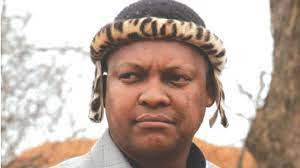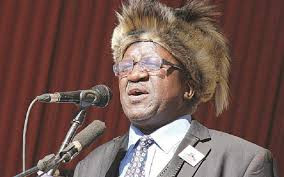BY Nomalanga Kabanzi “LET the ruling classes tremble at a communistic revolution. The proletarians have nothing to lose, but their chains. They have a world to win. Workers of all countries unite!”
This was Karl Max, the 19th century German philosopher, a critic of political economy, economist, historian, sociologist, political theorist, journalist and socialist revolutionary’s prediction of an impending global revolution in the 1800s whereby proletariats would rise across the world against their capitalist masters. For Zimbabwe, I would dare to postulate that it is now highly evident that workers and people in general now have self-consciousness and are aware that they are being exploited by those who not only own the means of production but their political will.
Despite the fact that those in power try by all means to find ways to gatekeep information in order to avoid their mistakes being noticed by citizens through enacting media laws such as the Freedom of Information Act, Broadcasting Services Act, Official Secrets Act and others, the emergence of digital media birthing social media platforms such as Facebook, Instagram, YouTube, Twitter, Tiktok and WhatsApp has brought new options for citizens to emancipate themselves.
Although I am still young, I have come to realise in the short period I have been around that many of these laws are implemented to monopolise power by those who are in control. It is heartening that Zimbabweans have also come up with brilliant ideas to air their views and expose those who are in power, and broadcast what they want.
And me being part of this new golden age of social media activism, I am confident to speak out and promote the idea of people using social media to emancipate myself from slave laws. Social media has become one of the mediums that people are using to publish what is really happening unlike long ago when people depended on State-controlled television channels, radio stations and newspapers for information.
People have come to realise that even the independent newspapers are not exposing all the corruption happening due to self-censorship. I tend to get excited by Achille Mbembe’s ideas in his Aesthetics of Vulgarity that when communication seems to be lacking, people tend to look for better ways and better channels of communication to expose corruption. This brings me to the idea that people are not tabula rasa — the theory that individuals are born without built-in mental content, and, therefore, all knowledge comes from experience or perception — but they actually think. Zimbabweans have challenged theorists such as Harrold Lasswell because his assumptions are that audiences are passive in his hypodermic needle theory and people have proved that they are not passive, but active audiences and people are now controlling the media instead of them being controlled by the media. Instead of people waiting for television channels to provide entertainment and news to them, citizen journalism has taken over and anyone has become a journalist, albeit unprofessional. When people find news on the streets, they post it on social media and then circulate the information without gatekeeping. People now have access to YouTube channels to provide the entertainment that they want rather than following the otherwise boring ZBC TV, which has limited shows such as the Naizaboo and Madamboss skits, to mention the few that immediately come to mind. So if people are creative like this, can the revolution to unite us against those who are subjugating us be avoided?
Keep Reading
- Chamisa under fire over US$120K donation
- Mavhunga puts DeMbare into Chibuku quarterfinals
- Pension funds bet on Cabora Bassa oilfields
- Councils defy govt fire tender directive
Despite the fact that a small number of people are still comfortable and eager to maintain the status quo, many want change despite efforts by those in power trying by all means to stop the revolution alluded to by Karl Max by blocking information from reaching the people. It is so sad that those holding the reins of power are trying hard to muddy the landscape and stop the revolution by hook and crook. A case in point was when Samantha Kureya, popularly known as Gonyeti of Busstop TV comedy, was abducted in February 2019.
She was beaten, forced to drink sewage and arrested for wearing apparel that resembled a police uniform in a mere skit. She was told by the police that her skits were becoming more political. So what? If her skits were becoming political, so what? Does she not have the right to be political? Anyway, is it a crime to engage in politics in this country? “I just hope in Zimbabwe we have the freedom to talk about the President without being in trouble, the freedom to talk about anyone without the police coming after you,” Gonyeti rightly observed. Even Citizens Coalition for Change leader, Nelson Chamisa was moved by Gonyeti’s ordeal to comment thus: “The love of power must never overwhelm the power of love, Mr ED why such barbaric human rights abuses and violations? Why destroy such talent.” Music from Thomas Tafirenyika Mapfumo and others shows that the revolution is nigh. Sulumani Chimbetu at on epoint upset his admirers in the ruling Zanu PF party after he appeared in Hwindi President’s song Chirwere lamenting the challenges Zimbabweans were facing since the rise to power of President Emmerson Mnangagwa in November 2017. “Takatadza… makagadzamambo muna Mbudzi varume (We erred by installing our leader in November), in apparent reference to an age-old Shona custom and tradition that revers November as a sacred month. It is not about politics, it is for change and a better Zimbabwe. I am for change in Zimbabwe, I join those saying Ngaapinde Hake Mukomana (Let the young man take over). You don’t have to be Chamisa’s supporter to know that corruption is destroying the country to call for change or a better Zimbabwe.
The days of threatening or condemning people for supporting the opposition are gone,” multi-talented singer Sani Makhalima once said.
- Nomalanga Kabanzi is a journalist based in Harare, Zimbabwe. She writes here in her personal capacity.





